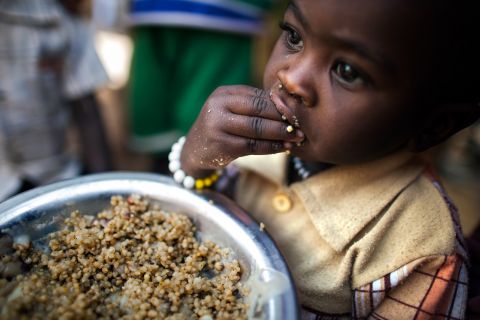OCHA and the UN system
The Office for the Coordination of Humanitarian Affairs (OCHA) of the UN Secretariat is responsible for coordinating responses to emergencies. It does this through the Inter-Agency Standing Committee, whose members include the UN system entities most responsible for providing emergency relief. A coordinated, system-wide approach to humanitarian relief is essential in providing assistance quickly and efficiently to those in need.
The UN Central Emergency Response Fund (CERF), managed by OCHA, is one of the fastest and most effective ways to support rapid humanitarian response for people affected by natural disasters and armed conflict. CERF receives voluntary contributions year-round to provide immediate funding for life-saving humanitarian action anywhere in the world.
What key UN entities deliver humanitarian aid?
Four UN entities, the United Nations Development Programme (UNDP), the United Nations Refugee Agency (UNHCR), the United Nations Children's Fund (UNICEF) and the World Food Programme (WFP) have primary roles in the delivery of relief assistance. UNDP is the agency responsible for operational activities for natural disaster mitigation, prevention and preparedness. When emergencies occur, UNDP Resident Coordinators coordinate relief and rehabilitation efforts at the national level.
Helping refugees
The UN Refugee Agency (UNHCR) emerged in the wake of World War II to help Europeans displaced by that conflict. The agency leads and co-ordinates international action to protect refugees and resolve refugee problems worldwide. The General Assembly created the United Nations Relief and Works Agency for Palestine Refugees in the Near East (UNRWA) to provide emergency relief to some 750,000 Palestine refugees, who had lost their homes and livelihoods as a result of the 1948 Arab-Israeli conflict. Today, some 5 million Palestine refugees are eligible for UNRWA services.
The UN General Assembly hosted a high-level meeting on 19 September 2016 to address large movements of refugees and migrants, with the aim of bringing countries together behind a more humane and coordinated approach.
Helping Children
Since its beginning, The United Nations Children's Fund (UNICEF) has strived to reach as many children as possible with effective, low-cost solutions to counter the biggest threats to their survival. UNICEF also consistently urges governments and warring parties to act more effectively to protect children.
Feeding the Hungry
The World Food Programme (WFP) provides relief to millions of people, who are victims of disasters. It is responsible for mobilizing food and funds for transport for all large-scale refugee-feeding operations managed by UNHCR.
The Food and Agriculture Organization of the United Nations (FAO) is often called on to help farmers re-establish production following floods, outbreaks of livestock disease and similar emergencies. The FAO Global Information and Early Warning System issues monthly reports on the world food situation. Special alerts identify, for Governments and relief organizations, countries threatened by food shortages.
Healing the Sick
The World Health Organization (WHO) coordinates the international response to humanitarian health emergencies. WHO is responsible for providing leadership on global health matters, shaping the health research agenda, setting norms and standards, articulating evidence-based policy options, providing technical support to countries and monitoring and assessing health trends. In the 21st century, health is a shared responsibility, involving equitable access to essential care and collective defence against transnational threats.

